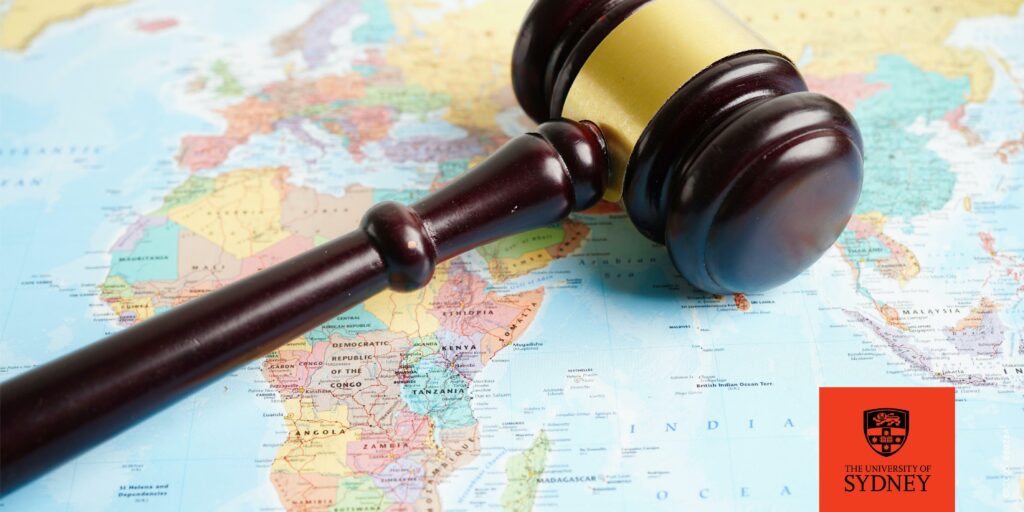Transformative Justice and Peace in Africa

- This event has passed.

Session 1: Transformative Justice and the African Union: Unsettling the Dominant Discourse and Practice of Transitional Justice
4 September, 1-2 pm
Online only
Speaker: Dr Wendy Lambourne, Senior Lecturer in Peace and Conflict Studies, Discipline of Sociology and Criminology, University of Sydney
Transitional justice as a field of practice has become standardised around four ‘essential and complementary’ key pillars derived from the Joinet principles against impunity: criminal justice, truth-seeking, reparations and guarantees of non-recurrence/institutional reform. These four key pillars were defined by the United Nations in 2010 as central to supporting transitional justice in countries seeking to build peace at the same time as addressing the legacies of mass human rights violations. I have argued that the imposition of these four pillars as the only model of transitional justice not only undermines the principles of local ownership and contextualisation, it is also incompatible with a process of transformative justice and the ultimate goals of peace and reconciliation. The African Union has subsequently developed a Transitional Justice Policy and Framework for the region that takes a broader, more flexible and localised perspective which is consistent with a model of transformative justice. This presentation will analyse the African Union Transitional Justice Policy published in 2019 with reference to the case of Gambia and potential application in Ethiopia, comparing with the UN’s attempts to implement its model of transitional justice in Burundi a decade earlier. Central to this analysis will be consideration of the implications of competing knowledges, power and resistance at play in determining the dynamics and outcomes of negotiations between local civil society, national governments, regional and international actors in the pursuit of peace with justice.
Session 2: Power and Influence: Civil Society, the African Union and Peace with Justice on the African Continent
4 September, 7:30-8:30 pm
Online only
Panel:
- Dr Wendy Lambourne, University of Sydney (facilitator)
- Daniel Gobena, Peace for Ethiopia Now
- Simeon Gready, University of Melbourne
This panel takes as its jumping off point an analysis of the power dynamics inherent in interactions between local, regional and international actors in the determination of transitional justice priorities and practice such as criminal trials and truth commissions. Panelists will discuss the reality of experiences in Gambia and Ethiopia with reference to the implementation of the African Union Transitional Justice Policy (AUTJP) and its focus on a more localised, contextualised and transformative approach to building peace with justice after mass violence. We will consider the role of the United Nations and other international actors interacting with the African Union, national governments and local civil society in determining transitional justice outcomes in Gambia, and how this might play out in Ethiopia where the AUTJP was referenced in last year’s peace agreement.
Participants at this event on zoom will have a chance to ask questions of the panelists and discuss the implications for diaspora community influence and involvement in transitional justice processes and the quest for peace in their countries of origin. We welcome contributions to the discussion from anyone interested in peace with justice on the African continent.

Session 1: Transformative Justice and the African Union: Unsettling the Dominant Discourse and Practice of Transitional Justice
4 September, 1-2 pm
Online only
Speaker: Dr Wendy Lambourne, Senior Lecturer in Peace and Conflict Studies, Discipline of Sociology and Criminology, University of Sydney
Transitional justice as a field of practice has become standardised around four ‘essential and complementary’ key pillars derived from the Joinet principles against impunity: criminal justice, truth-seeking, reparations and guarantees of non-recurrence/institutional reform. These four key pillars were defined by the United Nations in 2010 as central to supporting transitional justice in countries seeking to build peace at the same time as addressing the legacies of mass human rights violations. I have argued that the imposition of these four pillars as the only model of transitional justice not only undermines the principles of local ownership and contextualisation, it is also incompatible with a process of transformative justice and the ultimate goals of peace and reconciliation. The African Union has subsequently developed a Transitional Justice Policy and Framework for the region that takes a broader, more flexible and localised perspective which is consistent with a model of transformative justice. This presentation will analyse the African Union Transitional Justice Policy published in 2019 with reference to the case of Gambia and potential application in Ethiopia, comparing with the UN’s attempts to implement its model of transitional justice in Burundi a decade earlier. Central to this analysis will be consideration of the implications of competing knowledges, power and resistance at play in determining the dynamics and outcomes of negotiations between local civil society, national governments, regional and international actors in the pursuit of peace with justice.
Session 2: Power and Influence: Civil Society, the African Union and Peace with Justice on the African Continent
4 September, 7:30-8:30 pm
Online only
Panel:
- Dr Wendy Lambourne, University of Sydney (facilitator)
- Daniel Gobena, Peace for Ethiopia Now
- Simeon Gready, University of Melbourne
This panel takes as its jumping off point an analysis of the power dynamics inherent in interactions between local, regional and international actors in the determination of transitional justice priorities and practice such as criminal trials and truth commissions. Panelists will discuss the reality of experiences in Gambia and Ethiopia with reference to the implementation of the African Union Transitional Justice Policy (AUTJP) and its focus on a more localised, contextualised and transformative approach to building peace with justice after mass violence. We will consider the role of the United Nations and other international actors interacting with the African Union, national governments and local civil society in determining transitional justice outcomes in Gambia, and how this might play out in Ethiopia where the AUTJP was referenced in last year’s peace agreement.
Participants at this event on zoom will have a chance to ask questions of the panelists and discuss the implications for diaspora community influence and involvement in transitional justice processes and the quest for peace in their countries of origin. We welcome contributions to the discussion from anyone interested in peace with justice on the African continent.

